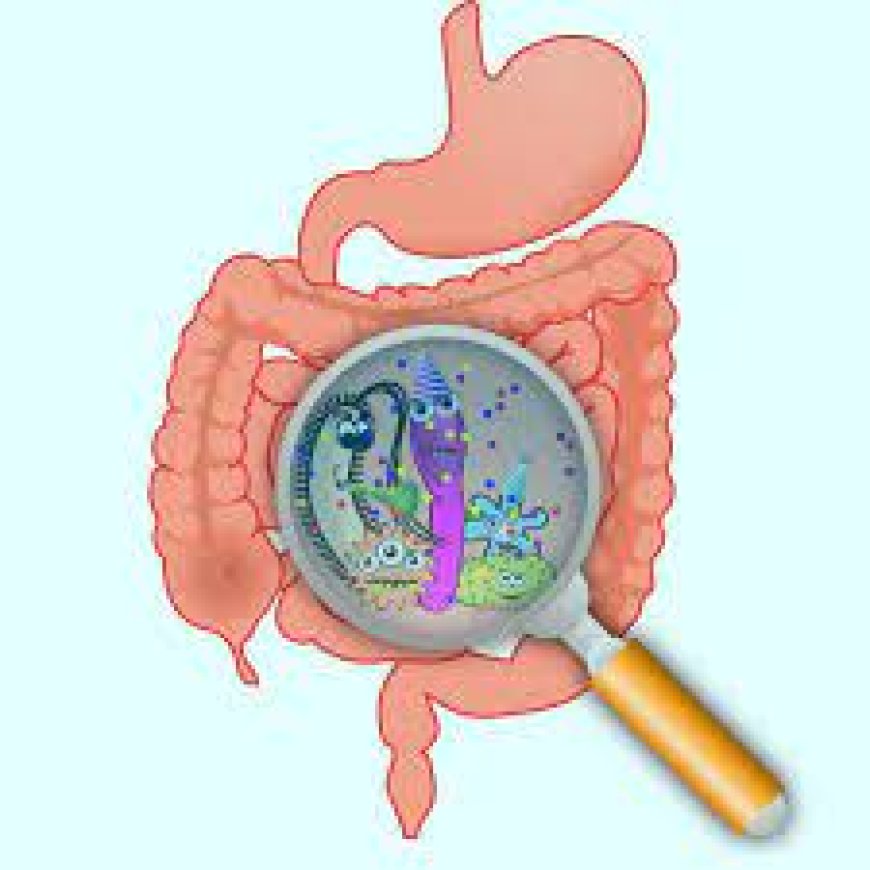An Overview of the Gut Microbiome: Understanding the Importance of Your Gut Bacteria

If you're well-versed in health matters, you may have encountered the term "gut microbiome" before. But what exactly is it? Let's find out.
What is the Gut Microbiome?
Definition
The gut microbiome refers to the diverse array of microorganisms in your digestive system. This intricately complex system is constantly evolving and responding to various external factors. Each person's gut microbiome is distinct and can be affected by various factors, including diet, lifestyle, genetics, and surroundings.
Composition
The gut microbiome consists of several microorganisms, such as bacteria, fungi, viruses, and other organisms. Among these, bacteria is the most dominant, with a wide range of over 1000 species in the gut. The most prevalent bacterial types in the gut are Bacteroidetes, Firmicutes, Actinobacteria, and Proteobacteria.
Functions
The gut microbiome is a vital component of your overall health and well-being. It performs various crucial functions, such as the digestion and absorption of nutrients, production of essential nutrients and vitamins, regulation of the immune system, protection against harmful microorganisms, and maintenance of the gut barrier function. Moreover, research has established that the gut microbiome also plays a role in developing various diseases, including obesity, type 2 diabetes, and inflammatory bowel disease (IBD). Changes in the gut microbiome can trigger alterations in immune system responses, inflammation, and metabolic processes, contributing to the onset of these conditions.
Factors Influencing the Gut Microbiome
Various factors, including diet, lifestyle, medication, age, and genetics, can influence the composition and diversity of the gut microbiome.
Diet
Diet is one of the most significant in shaping the gut microbiome. What you eat can directly impact the types of bacteria that thrive in your gut. A diet rich in fiber, fruits, and vegetables can promote beneficial gut bacteria growth. Conversely, a diet high in sugar, fat, and processed foods can disrupt the balance of gut bacteria, leading to inflammation and other health problems.
Lifestyle
Various factors, including your lifestyle, can influence your gut microbiome. Lack of sleep, stress, and lack of exercise can all contribute to an unhealthy gut microbiome. Chronic stress, in particular, can disrupt the balance of gut bacteria, leading to inflammation.
Antibiotics
Antibiotics and other medications can also affect the gut microbiome. Antibiotics can destroy good and bad bacteria, creating an imbalance. Proton pump inhibitors and nonsteroidal anti-inflammatory drugs can also disrupt the gut microbiome.
Age
Age is another factor that can impact the gut microbiome. As we age, the diversity of gut bacteria tends to decrease, leading to a less healthy gut microbiome. Older adults may also be more vulnerable to disruptions caused by antibiotics and other medications.
Genetics
Genetics can play a role in determining the composition of the gut microbiome. Certain genetic variations can lead to a predisposition to certain types of gut bacteria. However, genetics is only one of many factors that can influence gut health, and it is still not fully understood how much of an impact genetics has on the gut microbiome.
Role of the Gut Microbiome in Health
The gut microbiome, consisting of trillions of microorganisms, is crucial in maintaining your overall health. Here are some ways in which the gut microbiome affects your body:
Immune System
Your body's immune system relies heavily on your gut microbiome, which is crucial in its development and maintenance. This microbial community helps train your immune system to recognize and attack harmful pathogens while preventing them from attacking harmless substances. Keeping your gut microbiome healthy can reduce your risk of autoimmune diseases, allergies, and other immune-related disorders.
Digestive Function
Your gut microbiome is responsible for breaking down and digesting food, allowing for the absorption of nutrients. It produces enzymes that break down complex carbohydrates, proteins, and fats and can synthesize essential vitamins. If your gut microbiome is healthy, you have lower risks of getting digestive disorders such as IBS, IBD, and constipation.
Mental Health
Interestingly, the gut microbiome is also linked to mental health and mood disorders. It is responsible for producing neurotransmitters like serotonin and dopamine that help regulate mood and behaviour. An imbalance in the gut microbiome has been linked to anxiety, depression, and other mental health conditions.
Other Health Conditions
Imbalances within the gut microbiome can contribute to various other health conditions, including obesity, diabetes, cardiovascular disease, and cancer. Inflammation, a key factor in developing these conditions, can be caused by an imbalance in the gut microbiome. Your gut microbiome is essential for developing and maintaining your immune system. It helps train your immune system to recognize and respond to harmful pathogens while preventing them from attacking harmless substances. A healthy gut microbiome will help lower the risk of autoimmune diseases, allergies, and other immune-related disorders.







